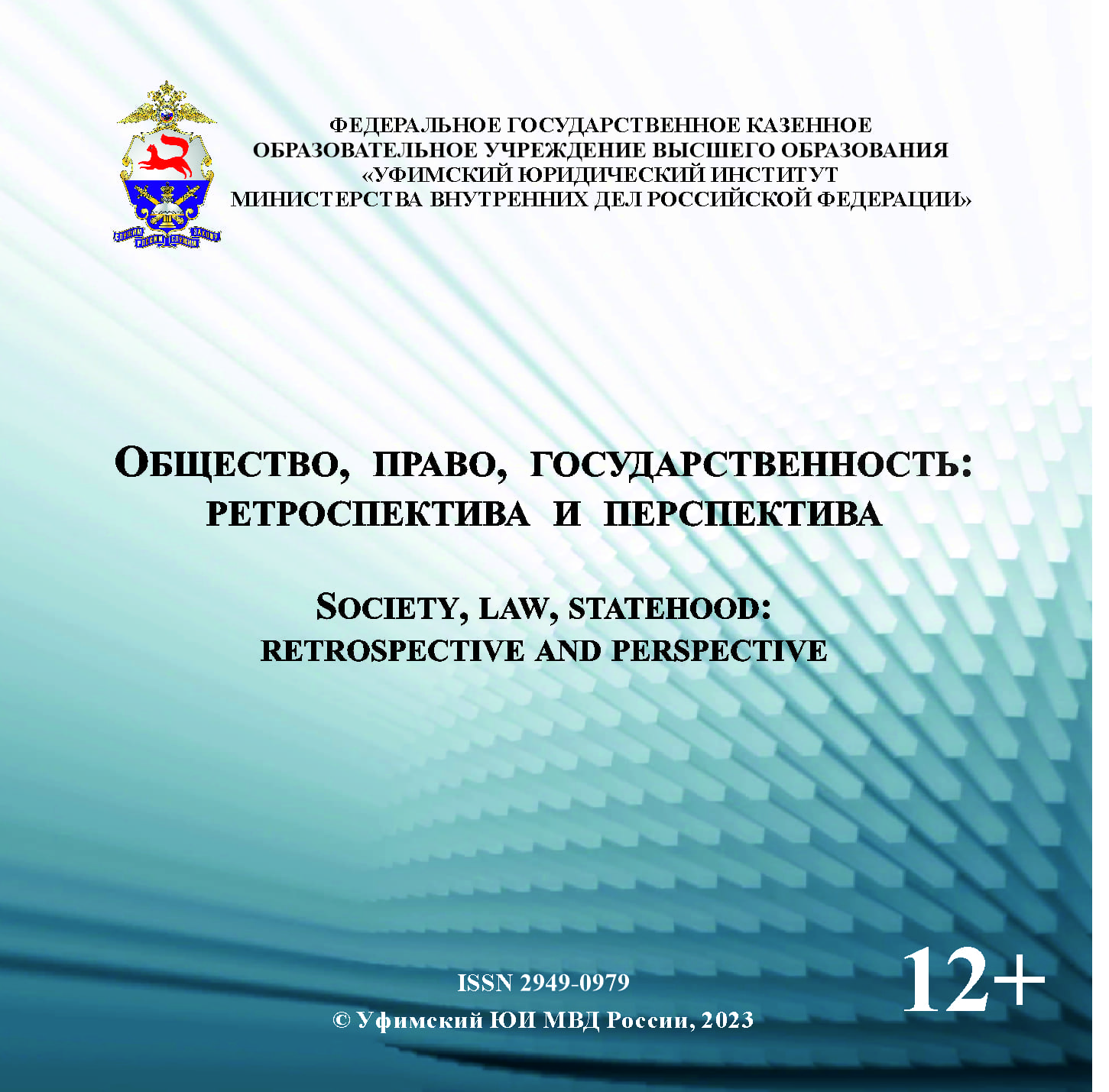Ufa, Russian Federation
Within the scope of the activity approach to the classification of participants in criminal proceedings, there is a necessity for a functional definition of those persons who do not implement the main criminal procedural functions mentioned in Art. 15 of the Criminal Procedure Code of the Russian Federation (hereinafter referred to as the Code of Criminal Procedure of the Russian Federation). The author has substantiated the existence of an independent, neutral in relation to the main criminal procedural function – promoting justice. At the same time, the study made it possible to establish the presence of this function in other procedural branches of law. This circumstance made it possible, within the framework of this article, to attempt to form a new scientific idea about the existence of an independent legal institution for the promotion of justice, which was not previously identified in the theory of inherent in all procedural branches of law. Based on the example of the analysis of the legal institution of assistance to criminal justice, it was determined that it represents a set of legal norms aimed at regulating the relations that develop in the criminal process and related to auxiliary activities aimed at reporting and (or) obtaining evidentiary information, providing advisory, technical (organizational) or other assistance to the parties and the court. The promotion of justice is defined as a complex intersectoral, functional, imperative-dispositive megainstitution, which includes in its structure the content of other legal institutions. Noting the cross-sectoral nature of the legal regulation of such procedural activities as the promotion of justice and the features of including other independent legal institutions in it gave the author grounds to raise the question of promotion as a megalegal institution.
promotion of justice, legal institute, criminal proceedings, participants in criminal proceedings, legal relations, criminal procedural functions, protection, accusation, megalegal institute, expert, specialist, witness, witness, translator
1. Berova D. M. Fundamentals of the theory of functionalism in criminal proceedings: abstract. dis. Doctor of Law. Rostov-on-Don : Rostov Law Institute of the Ministry of Internal Affairs of the Russian Federation, 2011. 48 p. (In Russ.)
2. Shimanovsky V. V. On the issue of the procedural function of the investigator in Soviet criminal proceedings // Jurisprudence. 1965. No. 2. P. 175-178. (In Russ.)
3. Strogovich M. S. Course of the Soviet criminal procedure: Basic provisions of the science of the Soviet criminal process. Vol. 1. M. : Nauka, 1968. 470 p. (In Russ.)
4. Kokorev L. D. Participants in justice in criminal cases. Voronezh, 1971. 159 p. (In Russ.)
5. Otter M. M. Investigation of a criminal case is a function of the criminal procedure // Soviet state and law. 1980. No. 9. P. 78-83. (In Russ.)
6. Latypov V. S., Ismagilov R. A. Reflections on the legislative classification of participants in criminal proceedings // Lex russica. 2021. Vol. 74. No. 5. P. 103-111. (In Russ.)
7. Marfitsin P. G. The term “others” in criminal procedural legislation // Vestnik of Nizhegorodsky University named after N. I. Lobachevsky. 2019. No. 2. P. 96-102. (In Russ.)
8. Pobedkin A.V. Traditions of proof in domestic criminal proceedings (why competitiveness is not a principle of criminal proceedings) // The nature of the Russian criminal procedure and the principle of competitiveness: to the 125th anniversary of the birth of M. S. Strogovich: Conference materials // Moscow State University named after M. V. Lomonosov. M. : Yurlitinform Publishing House, 2020. P. 78-83. (In Russ.)
9. Baranov A. M. Competitiveness in the Russian criminal procedure: conceptual contradictions // The nature of the Russian criminal procedure and the principle of competitiveness: to the 125th anniversary of the birth of M. S. Strogovich : Conference materials // Moscow State University named after M. V. Lomonosov. M. : Yurlitinform Publishing House, 2020. P. 306-311. (In Russ.)
10. Titov P. M. On the principle of competitiveness in criminal proceedings // Bulletin of Ufa Law Institute of the Ministry of Internal Affairs of Russia. 2023. No. 1 (99). P. 128-134. (In Russ.)
11. Tarasov A. A. Rational and irrational in discussions about the development of the Russian criminal procedure // Journal of Russian Law. 2023. Vol. 27, No. 3. P. 100-112. (In Russ.)
12. Latypov V. S. Assistance to justice as an independent criminal procedural function // All-Russian Criminological Journal. 2021. Vol. 15. No. 6. P. 786-796. (In Russ.)
13. Dikarev I. S. Anomalies of the legal status of the bodies of inquiry // Rule of law: theory and practice. 2023. No. 1. P. 97-104. (In Russ.)
14. Selina E. V. Application of special knowledge in the Russian criminal process : dis. Doctor of Law. Krasnodar: Kuban State Univ., 2003. 356 p. (In Russ.)
15. Zaitseva E. A. Concept of development of the institution of forensic examination in conditions of adversarial criminal proceedings: dis. Doctor of Law. M. : Moscow State Law Academy, 2008. 741 p. (In Russ.)
16. Dyakonova O. G. Expertise in legal proceedings and other types of jurisdictional activities : textbook (workshop). M., 2023. 200 p. (In Russ.)






